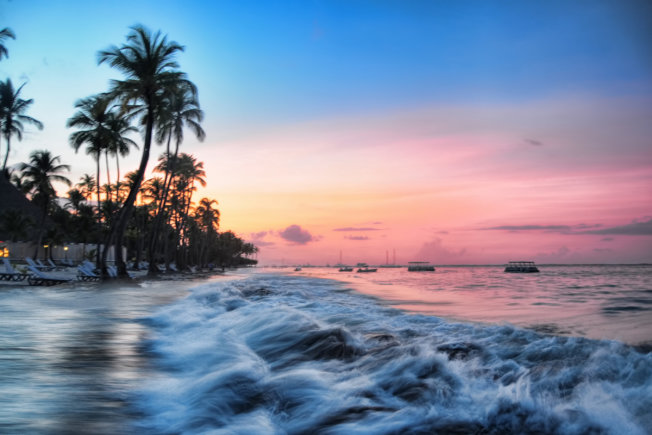Kathleen Peddicord writes a great story for US News and World Report about life on the Pacific Coast of Panama.
Peg Fairbairn’s 30-year tenure teaching in Texas’ public schools was winding down. She was coming face-to-face with retirement and beginning to panic. Fairbairn’s partner, April Hess, was still working as an accountant, but didn’t want to be for much longer. The pair dreamed of retirement, but had only Fairbairn’s pension to fund it. With taxes, rent, health insurance and all the other costs of living in modern America, Fairbairn and Hess were facing a meager existence in Texas unless they kept working.
That’s not how retirement is supposed to go. After working and paying taxes their entire adult life, Fairbairn and Hess wanted to relax a little and do things because they want to do them, not because they have to do them.
They didn’t want to keep working. Then, by accident, a new option presented itself: Become an expat.
Fairbairn and Hess’s objective in pursuing retirement in another country was singular and straightforward: To reduce their cost of living. It was simple math. Fairbairn’s monthly pension of $2,935 (after federal income taxes) was not going to cut it in Texas. Hess (the accountant) calculated the pair’s Austin expenses to be in the neighborhood of $5,260 a month. If they stayed in Texas, Fairbairn would have to pick up substitute teaching slots and Hess would have to take on freelance bookkeeping jobs.
The trouble was they had no idea where to go. Cheap was the priority, but two women thinking about making this move to another country were understandably concerned about safety. When they made a list of what mattered most, they also added good health care and easy access to the United States for visits with family.
Fairbairn and Hess had been to Costa Rica on vacation and enjoyed it, so they put that at the top of their “where to become an expat” list. They also considered Panama and Uruguay for their costs of living and the lifestyles they offered. The pair eventually decided that Uruguay was too far and Costa Rica was too expensive. Panama became the focus. For Fairbairn and Hess, this country offered the most enticing package.
Panama is not the cheapest place to set up shop in Latin America, but it is among the easiest. The sizable community of foreign retirees and expats means newcomers like Fairbairn and Hess will be able to find like-minded friends and resources for support.
In their Panama research, Fairbairn and Hess discovered the country’s Azuero Peninsula, where the beaches are beautiful and the cost of living is low. Hess wasn’t sold on the idea of retiring to another country as quickly as Fairbairn, but she came around when she analyzed the numbers. The monthly budget she projected for the pair living on the Azuero coast was about $1,500.
Fairbairn and Hess defaulted into the idea of retiring to another country out of desperation. They weren’t going to be able to retire at all in Texas. Anything seemed better than that. Two years into their life in Panama, they have settled in Palo Seco on the western Azuero coast. However, they have realized that the real upside of the relocation has nothing to do with money. The move has given them the opportunity to completely reinvent not only their lives but also themselves.
You could say that Fairbairn and Hess have figured out a way to live their ultimate retirement. However, the life they’re creating for themselves on Panama’s Pacific coast in no way resembles any idea either of them had about what their life in retirement might look like.
In fact, Fairbairn and Hess aren’t technically retired any more. They’ve started working again for a property developer in Panama. Their work is fun, rewarding and a way to become connected with the community where they’ll be living. It’s also a source of cash flow to supplement their monthly pension income.
Their initial budgeting was spot on and they are able to live in this part of Panama on $1,500 per month, leaving them an excess of $1,435 a month from Fairbairn’s pension. However, that $1,500 budget doesn’t include dinners out, travel around Panama, big-city shopping in Panama City or travel back to the U.S. to visit their kids. These are all things that Fairbairn and Hess have been able to indulge in during their time in Panama, because they’ve been able to put money aside each month, both the extra from Fairbairn’s pension and also what they’re earning from their part-time work with the development group. Some months they’re able to deposit $2,500 or more into their savings, which is growing into a nice cushion.
And that’s how a retired school teacher and accountant from Austin, came to find themselves ringing in the 2014 New Year by dancing with thousands of strangers in the streets of Las Tablas, on the Pacific coast. The night air was alight, flashing and crackling. Smoke and sparks cascaded overhead and in all directions. Men were setting off roman candles just feet away and throwing entire bricks of firecrackers atop already burning fires in the streets all around the crowded square. It was a crazy scene and exhilarating. And it reminded them why they pulled up the stakes and reinvented their lives in an exotic new locale.
